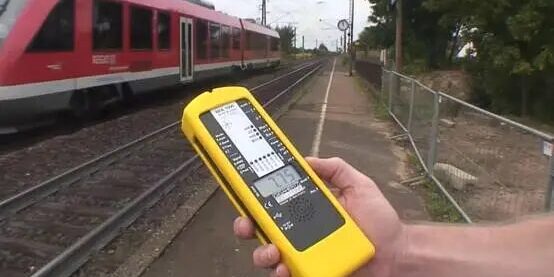Railway radio frequency tag (RFID) technology plays an important role in the railway system, especially in the operation and management of high-speed railways. This technology not only improves the safety and efficiency of railways, but also provides support for the intelligence and automation of railways.

Application of RFID tags on high-speed railway inspection vehicles: RFID tag technology is used on high-speed railway comprehensive inspection vehicles to achieve synchronous inspection, analysis and early warning of the structural status of industrial power supply professional equipment and line environment. By installing electronic RFID tags on contact network pillars or in tunnel linings and installing tag readers on the vehicle, accurate mileage information can be obtained in real time. This technology can also maintain high-precision positioning (error within 2 Metri) under high-speed moving conditions (such as 400km/h).
Application in smart railways: RFID technology has a wide range of applications in smart railways, including automatic train station announcements, passenger safety inspections and station equipment management. Per esempio, by deploying RFID tags and readers on trains and stations, the automatic station announcement function of trains can be realized, the efficiency and accuracy of security inspections can be improved, and the real-time monitoring and precise management of station equipment can be achieved. These applications help improve the transportation efficiency and management level of railways while reducing costs.
Application case of Beijing-Shenyang high-speed railway track slab: In the Beijing-Shenyang high-speed railway track slab, China’s independently developed RFID chips are embedded to monitor the track status. These chips serve as the “carta d'identità” of the track slab and are used continuously during its life cycle. By combining the chip with the information system, the intelligent management of the track slab production process is realized. Per esempio, the relevant information of each procedure such as casting, manutenzione, demolding, magazzinaggio, and transportation of the track slab is entered into the system platform, ensuring the transparency and efficiency of the production process.
In sintesi, railway radio frequency tag technology plays an important role in improving the efficiency and safety of railway operations, and also promotes the development of railways towards intelligence and automation. With the advancement of technology, it is expected that this technology will be more widely used in the railway field in the future.





